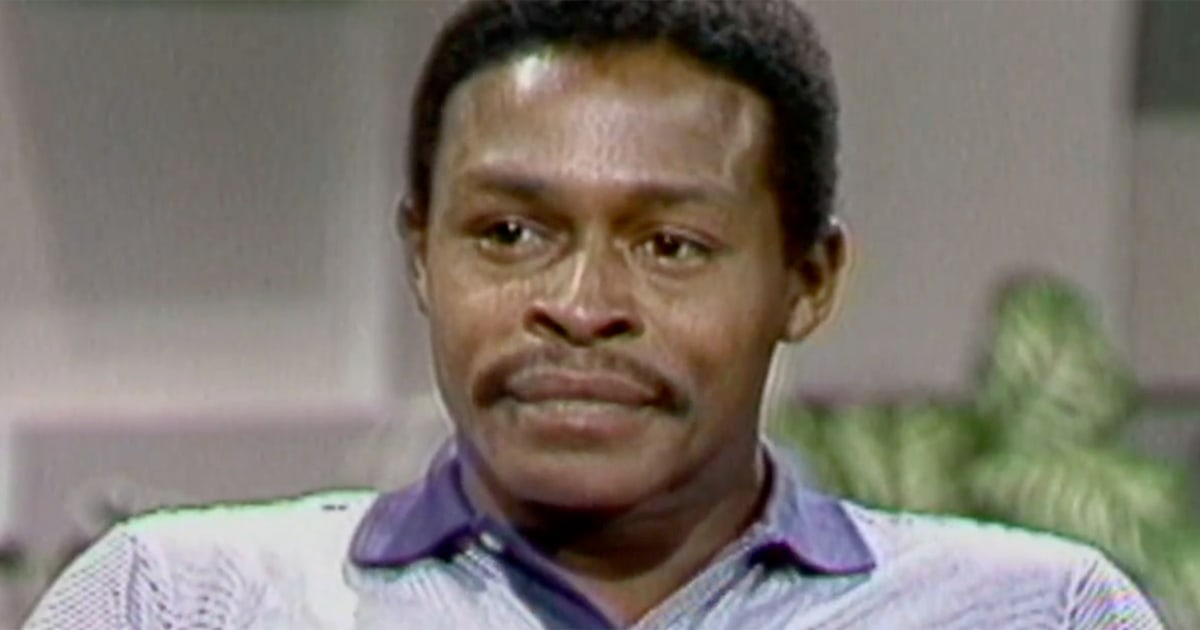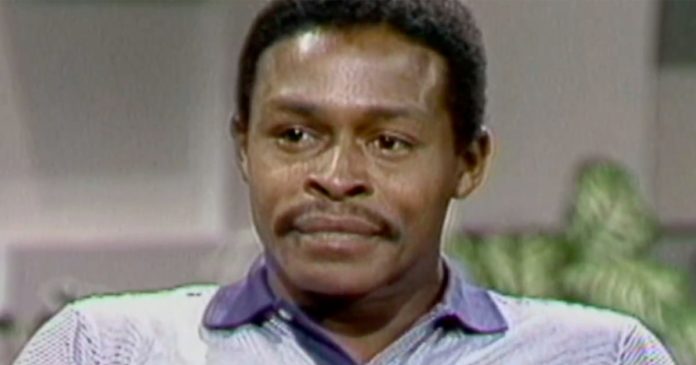
“His story has been hidden for so long, I think, because of the powerful organizations he was associated with in the 1970s not wanting to broadcast his story,” Andrew Maraniss, who wrote the book “Singled Out: The True Story of Glenn Burke,” told TODAY by phone.
“His name is back,” he said, citing improved diversity efforts in sports and society in general.
Earlier this month, during the Dodgers’ ninth annual Pride Night on June 3, the team honored Burke in a pregame ceremony that included more than 40 members of Burke’s family.
But Burke’s experience playing for the Dodgers stood in stark contrast to the smiles and rainbows on that celebratory night.
“Were you traded from the Dodgers to the A’s because you were gay?” Gumbel asks Burke in the 1982 interview. “I’m not sure,” Burke replies. When Gumbel asks what he thinks, Burke replies, “Yeah.”
The discrepancy between then and now was apparently not lost on Lutha Burke Davis, Burke’s oldest surviving sister. “Glenn probably would have said, ‘Dang, about time!’” she told The New York Times before the Dodgers’ Pride Night.
Maraniss’ book tells Burke’s story from his childhood growing up in Oakland and his journey to the World Series to discovering his sexuality, facing injury, dealing with addiction, and dying of AIDS-related causes in 1995.
I thought if I just kept it to myself for a while until I was ready to tell them that they might understand if they got to like me first instead of what I’d done, you know, sexually or something like that.
Glenn Burke
After declining a bribe to marry a woman by the Dodgers’ general manager Al Campanis, Maraniss said, the team traded him to Oakland, where he faced homophobia from teammates and fans; he rarely played at all before being sent to the minors in Utah.
Burke told Gumbel that he guessed people in baseball knew he was gay from hearsay. “Because I hadn’t said a thing,” he said. “I was just working and playing ball and living a regular life, I thought.”
He added: “I thought if I just kept it to myself for a while until I was ready to tell them that they might understand if they got to like me first instead of what I’d done, you know, sexually or something like that.”
Maraniss said that “neither team (was) eager to tell his story, the MLB either.”
“Burke was actually hoping he would re-emerge and get another shot in sports when he spoke to Bryant Gumbel,” he told TODAY. “At the time, most of the stories in national media about gay men focused on the AIDS crisis. He was hoping his story could change that image.”







